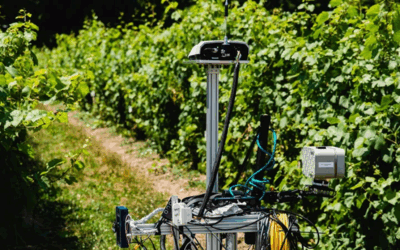In an effort to unify the rapidly expanding set of academic activities investigating artificial intelligence (AI), Weill Cornell Medicine is launching a new AI to Advance Medicine initiative. Encompassing a Dean’s Lecture Series and Dean’s Grant Program, the...
Cornell AI News
News Category
Filter by Topic
‘Red team’ students stress-test NYC health department’s AI
People usually strive to be their true, authentic selves, but this fall, five master’s students at Cornell Tech adopted not only alter egos but also “bad intent,” in an effort to make AI safer for health workers serving people with diabetes.
Doctoral student’s system eases patient-discharge process
Every day, millions of people are discharged after extended hospital stays, but matching these patients with appropriate care facilities can be arduous, often reliant on months-old, inaccurate data.
Now, a text message-based, hybrid computer-human system that regularly updates both patients’ and care facilities’ availability statuses, developed by a Cornell doctoral student, is smoothing that time-consuming process. The system was tested at a hospital in Hawaii for 14 months, beginning in early 2022, and helped place nearly 50 patients in care facilities.
Balancing the promise of health AI with its carbon costs
The health care industry is increasingly relying on AI – in responding to patient queries, for example – and a new Cornell study shows how decision-makers can use real-world data to build sustainability into new systems.
Empire AI: Cornell call for compute resource proposals
Empire AI is now soliciting proposals from Cornell faculty and researchers to use the extended “Alpha” machine with 144 H100 GPUs, as well as the new “Beta” machine that is expected to come online in December.
Cornell Richard P. Riney Canine Health Center launches Big Red Bark Chat
The Cornell Richard P. Riney Canine Health Center (RCHC), part of the Cornell University College of Veterinary Medicine, has recently launched Big Red Bark Chat, an AI-powered chatbot designed to help dog owners and veterinary professionals’ access reliable canine health information when and where they need it.
Cornell Institute for Digital Agriculture powers 15 innovative new projects
The Cornell Institute for Digital Agriculture (CIDA) has announced the recipients of its 2025 Research Innovation Fund (RIF) faculty and student grants supporting new, cross-disciplinary research projects designed to improve global food systems through digital innovation.
Fei Wang Named Senior Faculty Fellow in Clinical AI at Cornell Tech
Cornell Tech has announced the appointment of Fei Wang, professor at Weill Cornell Medicine, as the new Senior Faculty Fellow in Clinical AI. The newly established role will strengthen Cornell Tech’s leadership in digital health and artificial intelligence, while also expanding interdisciplinary collaboration between Cornell Tech and Weill Cornell Medicine.







